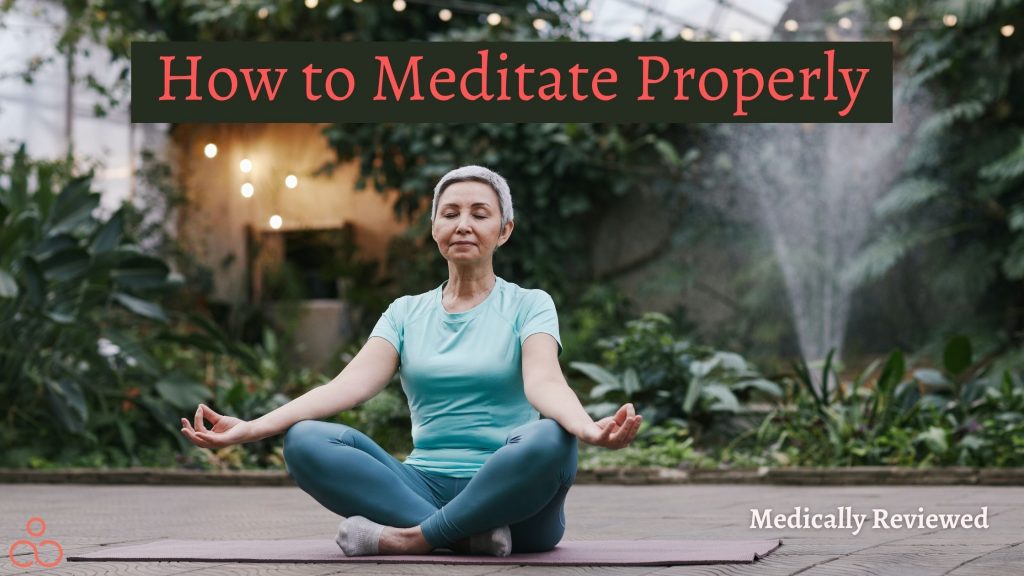Meditation is a generations-old practice that is thought to have originated in India thousands of years ago. Though meditation has a long cultural history, it has evolved from a religious concept to something that now appears more fashionable than spiritual. The idea of meditation may appear simple to many – and it is in many ways, but many people don’t know where to begin. If you are also wondering “how to meditate properly,” there stands a good chance because you undoubtedly have heard a lot about how beneficial it can be to your health.
Before we explain the correct way to meditate, it is essential to understand the meaning of meditation first.
So, What is Meditation all about?
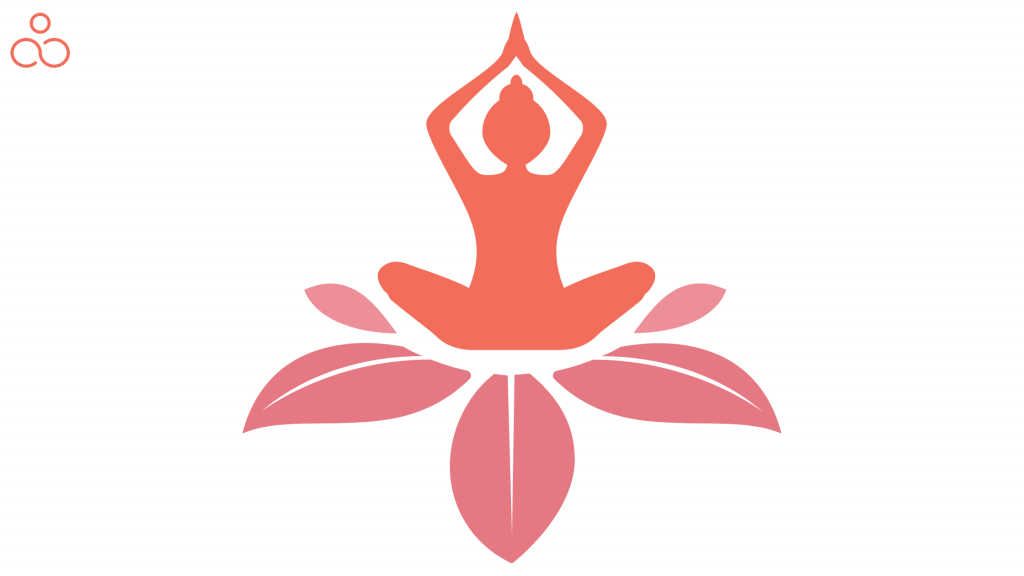
Most commonly, people think it is keeping quiet and calm for some time and breathing in and out. Well, they are correct, but partially.
So, what is meditation accurately, then? Honestly, there is no clear definition for mediation. Instead, the term is an umbrella that envelopes several different techniques to perform contemplation, welcome peace within ourselves, and bring in several benefits from it. One of the most common references made for defining mediation is the Buddist traditions that have extended to be applied and utilized in western society. It is more about searching for relaxation, peacefulness, and calmness. It is more about searching for relaxation, peacefulness, and calmness. Therefore any activity, like fishing, cycling, cooking and much more, can become meditation.
“If you check in on your mind at any point during the day, you’ll probably notice you’re thinking about the past or thinking about the future, or you’re generally planning, obsessing, worrying, and catastrophizing,” says Winston. “Mindfulness is getting in the practice of pulling our minds away from these places to come back to the present moment.”
Did you know just like you have different types of every aspect in your life, meditation, too, has its own types? Yes! Meditation has different types, and one of them is mindful meditation.
Since there is an immense presence and focus on mindfulness, it is crucial to learn the most appropriate mindfulness. Thus, here we dive into the discussion, which would inform about what the term ‘mindfulness’ means in the sphere of mediation.
What do we mean by mindful meditation?
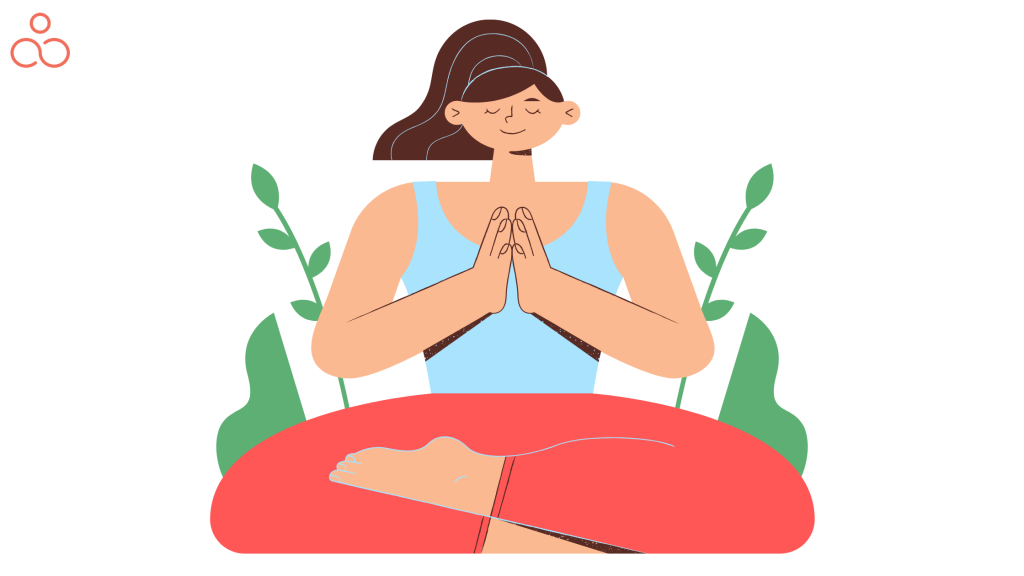
Before we discuss the term ‘meditation’, It is better to discuss the term ‘mindfulness’ first. Mindfulness means living in the present moment. It makes us conscious of ourselves. It is no wonder that in our strenuous schedules, we have lost ourselves. But, being mindful helps you to be linked with your spirit. And this results in you attracting more peace and positivity towards yourself.
It is not a secret that everyone is worried about the future. In addition, many are also perplexed about certain decisions or events in the past. And when we had to face such an unpredictable and anxiety-provoking situation of the Covid-19 pandemic, this factor has surfaced more clearly than ever! Can anyone agree even a little less? Absolutely not! But being mindful helps us reconquer our thoughts and focus on what is most important in our present. And when mindfulness is achieved through mediation, it becomes mindful meditation.
Therefore, in the sphere of mediation, mindfulness becomes a process by which you achieve better self-awareness.
Now, there is a fine line of difference between mindfulness and meditation. Though both are interrelated and how to and with each other, it is essential to understand the existing differences.
How is mindfulness different from meditation?
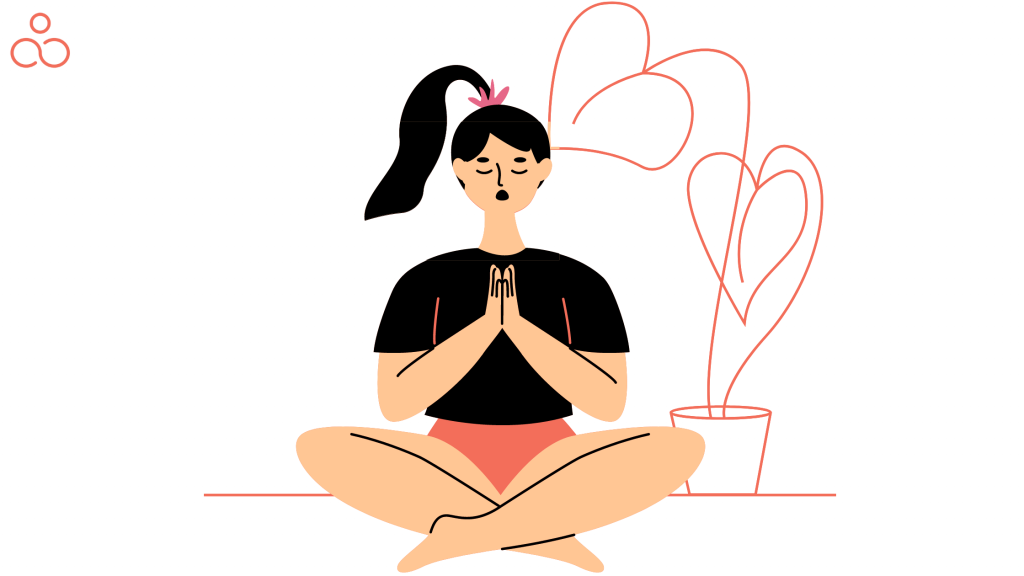
Mindfulness and meditation are entirely different from one another.
Mindfulness is actually a state of being. It is a particular or attribute that makes one open and non-judgemental towards yourself and others. It is devoid of any criticism or worry about your past or future. And, on the other hand, mediation is a practice or a verb. It is the state of being aware of your present moment.
Mindfulness can also be described as a type of mediation. Thus, it falls under the sleeve of mediation. So, you ‘perform’ mediation and be mindful. Other than this, you can relate mindfulness and mediation as they are related terms, and one can not take place without the occurrence of the other.
Meditation brings peace, but bringing peace is also a technique and a process. The next important aspect to discuss is the common hurdles that everyone faces during mediation.
Struggles faced in meditation- Understanding your mind!
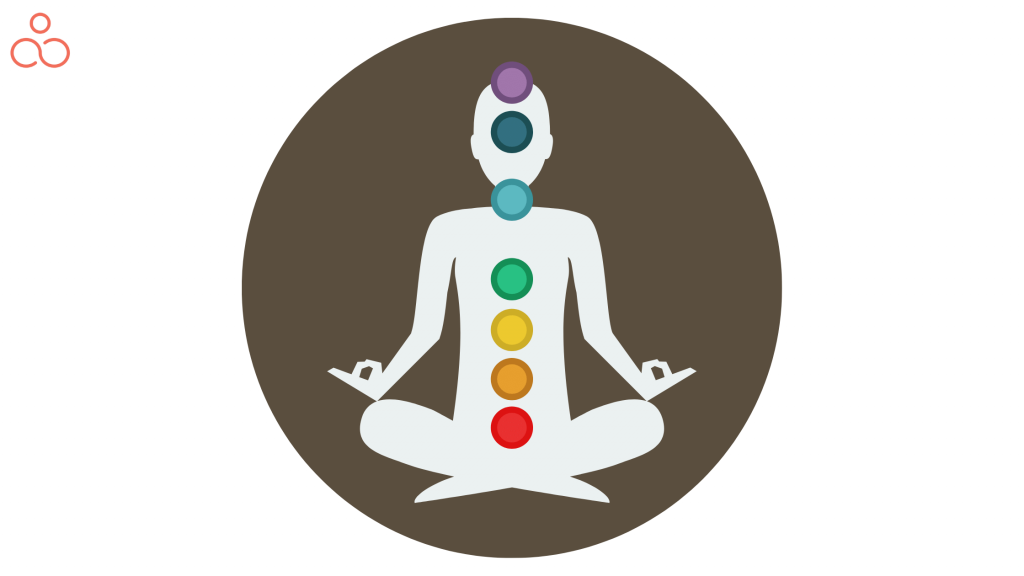
Mediation may sound familiar and easy, but it is not so. Let us try a task right now! Try to close your eyes and just breathe for some time! (yes, a short 5-minutes meditation)
Is your mind able to focus on not having random thoughts? The answer and the occurrence are inevitable! But don’t worry. It is absolutely normal. Your mind has come a long way, working out the everyday tasks. And, thus, it is permanently active. And it is not unnatural for it to wander. The difference is that you can feel your mind wandering when trying to focus on it. And, that is what mediation aims to do!
Meditation will help you connect yourself to your body, mind, and soul. And it is the regular and standard duty of your mind to keep processing something or the other. And that is the reason you catch yourself unable to focus successfully. It happens to everyone and is common to even those who meditate regularly. Although, the instances are very few for them.
Methods to help the mind focus better
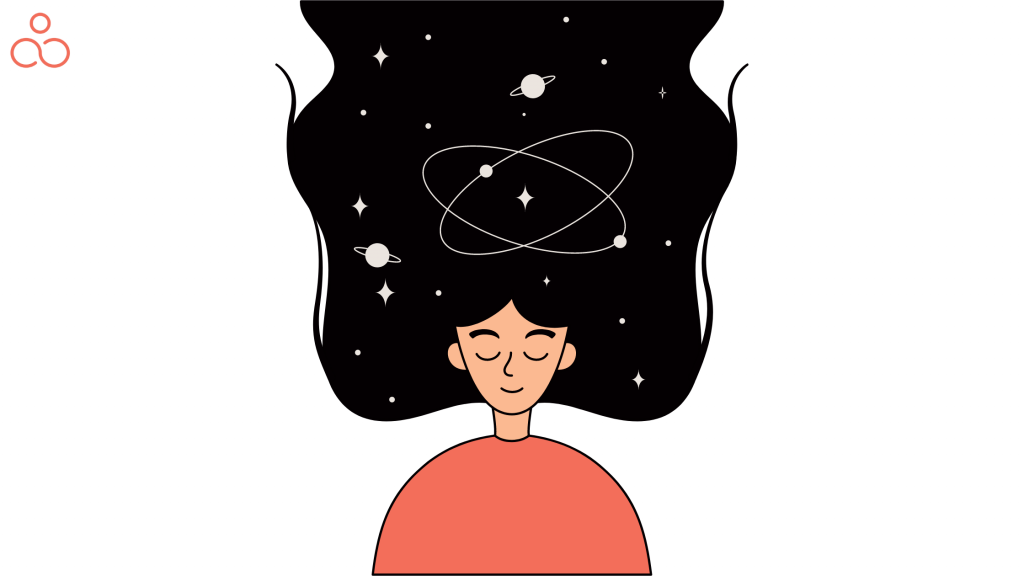
For successful meditation, we need to train our minds to focus as and when we want. Some methods are simple and effective for this purpose.
- So, the first step is to realize and accept. You need to realize that the mind can think and wonder. It is an entirely natural process and will lead to acceptance. Accepting that the constant struggle of making your mind focus to meditate is natural is a big step. And that would eventually lead you to the next step, most effectively.
- In the next step, you do not snatch your attention back. This is a common mistake that most people make, especially beginners. Instead, the method is to reopen your attention. And as you reopen your attention span, you gradually bring your focus back to breathing. It is more like- first catching yourself losing focus. Then, realize the thought(s) that is pulling away from your focus, followed by accepting that it is alright to occur. And then, again, returning to your process of breathing. It is about effort and persistence. It is not that, in the very instance when you go back to focusing again, you would not lose your concentration.
- Now, focus on your breathing pattern. There will be innumerable times that you catch yourself losing focus. The secret is keeping on trying and getting back to meditating. And the best way to do so is by focusing on your breathing pattern and focusing on thoughts and your process of inhaling and exhaling.
Different Styles of Mindfulness Meditation
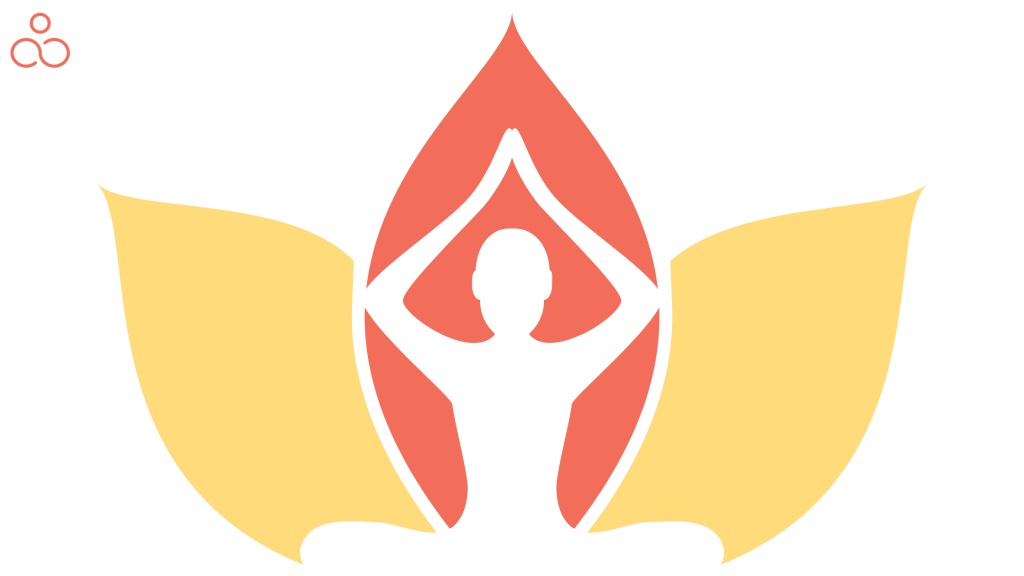
After you’ve mastered seated meditation, you might wish to experiment with different types of meditation. Whereas the previous meditations focused on the breath, the meditations below concentrate on different body regions.
Body Scan Meditation
This might sound fascinating. Yes, it is so! Here is how you can do it. It is simply scanning yourself physically. Yes! Start from your toes. Start feeling your toes moving. Then slowly move up to your ankles. Try sensing them. Then gradually move to your hips, your stomach to your arms, and do not stop until you reach your crown. Well, there is Ariel here. And that is, no judgment at all. It is just about feeling yourself. Want to know what secret lies behind doing this? When you are scanning your entire body, your mind gets occupied with just one task. So, you can focus better, which results in a successful meditation session.
Loving-Kindness Meditation
Also known as Metta meditation, this meditation aims to enhance love, compassion, and acceptance. Typically, one begins his meditation practice by taking a few deep breaths and then focusing his attention on his heart center and the emotion of love. All you want is the best for everyone. Without holding anything for yourself, you mentally prepare yourself to be ready for others. Thus, you gradually train yourself to expand your heart and become a more compassionate person in this way.
Here is how to practice it- start by sitting comfortably. You can also lie down if that seems more comfortable to you. Relax and calm yourself by scanning your entire body. Silently recite well-wishes in your mind that bring positive qualities to oneself and others, such as “May you live happily, May you be cheerful, May you be loved, etc.”.
This is a part of this loving-kindness exercise. Usually, the person starts by sending these thoughts to himself, then to friends or family, other acquaintances, and finally to everybody else in the world.
Walking Meditation
PLEASE EXERCISE THIS TYPE ONLY WITH CAUTION!!!
Basically, it’s walking for the aim of honing your meditation skills. It is also known as Zen meditation.
Walking meditation practices can be found in Buddhist, Yoga, and Daoist traditions (Taoism). They may employ techniques such as focusing on the sensations of the foot, mindfulness of the entire body and surroundings, breathing synchronization, and visualization.
Here is how to practice it:
- Begin by walking slowly.
- Inhale the first three steps, for example, a slight inhalation, a little more inhalation, and the third time, a bit more.
- Don’t over-inhale because you’re trying to relax your mind and body.
- Then, exhale the following three steps in the same manner and tone that you inhaled the breath. Ensure you have enough time (no rushing), enough space, and enough air to breathe (try not to suffocate yourself).
Make it a pattern that is appropriate for you. The pattern is the relationship between the rate of breathing and walking. Pay attention to each step you take and take notice of your leg movements. Don’t put too much pressure on yourself; it won’t help. A little effort is more than enough to compensate for the added stress.
Return your focus to the experience of walking, regardless of what else is occupying your mind. Your mind will wander, so guide it back as many times as you need to without becoming frustrated. Also, be aware of your surroundings and stay safe.
Mindful Eating
What can be a more divine task than relishing on your food, isn’t it? And what if we tell you that this heavenly task can be turned more divine as it can readily help you with mediation? Yes, that’s true! Let us explain how. When choosing what you want in your meal, be analytical and responsive. Do not just order or have anything and everything on the menu card or whatever your companions order. Instead, analyze the menu. Try to ask yourself do you want to have this item? And when you receive your food, observe it. Try to experience every essence and factor of it, starting from its smell to its appearance. This is how you get to connect with yourself. You know what you want, and what you like. And what really makes you happy!
Slowly, you will find that your attention span has lengthened, and you have been meditating for a long time, without your mind wandering in other thoughts.
A Note for the Beginners
A warm greeting to all the new and lovely enthusiasts who want to find their way for a successful mediation session. Don’t worry! We have got your back. Since you people are the most delicate of the lot, some extra care has to be you. Also, there are some other things you must know.
To start with, you have to strengthen your willpower. Here’s why. Since you are doing it for the first time, your mind will take the maximum time to focus. So, it’s a quick heads up! DO NOT give up in the first instance. Remember, it takes time for anything significant to be achieved.
Don’t be too harsh on yourself. You need not shut your eyes forcibly for 30 minutes. Trust us; it will do more bad than good. You will become more anxious and frustrated. Begin with smaller goals. Even if it is for 5 minutes, go for it! Quality is more important than quantity!
The proper way of meditation and how to meditate properly
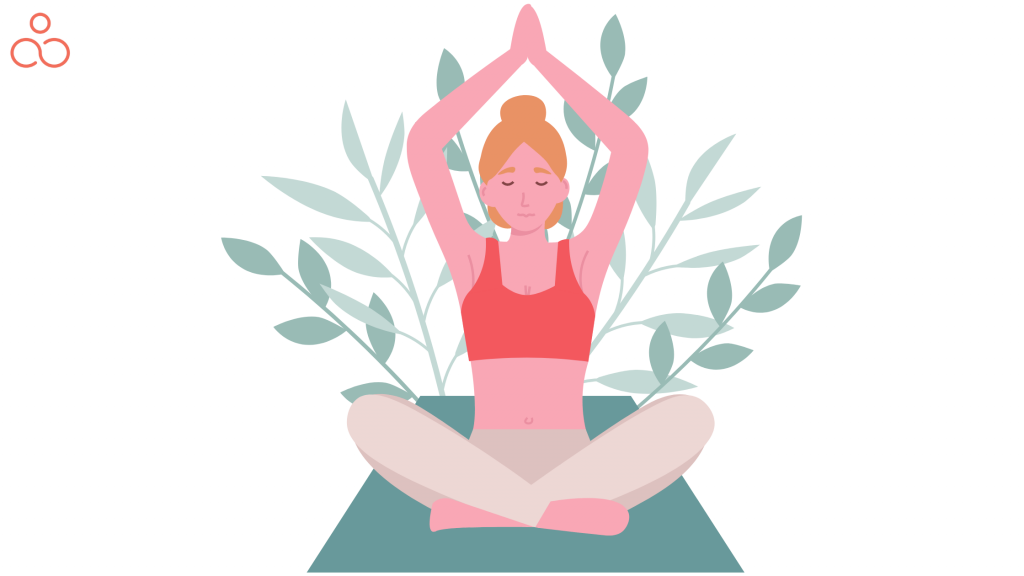
Did you know specific methods make your mediation process accurate and appropriate? Don’t worry! You are not alone in this. All of us were beginners at some point. And it is common for most people not to know the existence of the meditation methods.
Thus, so that you can meditate in the right way from henceforth, here is the list of the methods that make your meditation ideal.
Seat yourself comfortably
Find yourself a proper place to sit. Choosing an environment devoid of noise or any other distractions is always preferable. It is because you will already be facing several internal hurdles. Like, your mind will not agree to focus, you will have random thoughts interrupting your mediation and the like. Thus, to level down the distractions as much as possible, seat yourself in as peaceful an environment as possible.
Do you know every cloud has a silver lining? Confused, what is the reference here? Well, some noise can help you meditate better. Like, the sound of a passing train, whooshing wind, or trickling water can help you calm your mind. But, for that, channelizing your mind is essential.
However, when you practice for a long time, you will find that your mind is no longer distracted by minor external distractions. Although it takes time to reach that level of proficiency, you can achieve anything and everything!
Give yourself a time limit
This step is essential for beginners. Try to give yourself a time limit that is not too long. You may want to challenge yourself by setting a greater time span. But, trust us, most probably, it is going to hell. Your baby steps are eventually going to be fruitful. Therefore, set yourself small time limits. And as you find yourself being successful consistently, gradually increase the time limit you set for yourself.
Practise introspection
Do not get startled by the term! It is a blissful and heavy process that you, me, and everyone can perform effortlessly. The term dwells in the sphere of psychology and means looking into yourself. You are a being, and you carry a whole universe inside you. Introspection is investigating, knowing, and becoming aware of the universe that resides in you. The more you know about your inner self, the better your mind will be with your body and soul.
Cater to yourself based on your comfort
Comfort is an individualistic attribute. Like, you might be comfortable meditating on a chair. Someone else might prefer a bed or a couch. So, it is not a rule to perform meditation, especially on a chair or a bed. It would be best if you discovered what your body is comfortable with.
Choose the location accordingly. Comfort is crucial because the absence of comfort can be a significant distraction. So, where there is comfort, there is better meditation!
Also, some beginners may become hard on themselves. Please do not challenge yourself or force yourself to sit compactly in one place. Remember, when you sit for too long, with your legs crossed, it can lead to numbness. So, comfort and self-care go hand in hand.
Can I lie down? Do I always have to sit cross-legged? Oh, no! No rules at all! The sole purpose of mediation is to make your mind focus and feel peaceful. If you can focus lying down, so be it! Moreover, generally, laying down gives you more comfort, and thus, mediation also becomes better. But there is a risk of falling asleep, especially when you are too tired.
Feel yourself breathing
What is the only task where you can easily succeed in fruitful mediation if you get yourself involved- it is focusing on your breathing. Try to feel the air as you breathe in. Feel it going through your nose to your lungs, thereby puffing them up. And as you breathe out, feel it traversing from your filled lungs to your nose and then out of your body.
Focus on your breathing, feel the sensation as you inhale the air, and exhale it out. When you focus on your breathing practices, it helps you take yourself out of the random distractive thoughts. And therefore, you can focus better on your body. As a result, your process and motive of meditation become successful.
Set Reminders, Be Persistent
What is the most successful key in the world? CONSISTENCY! The more you are consistent with your meditation routines, the better it is. So, what can be possibly done to maintain persistence? Setting reminders! It can be reminders and alarms on your phones. Or, you can also keep your yoga mat in a place where it catches your vision. This enables your mind to recall that you will have to sit for a quick meditation session. Put on sticky notes and what not to register in your mind that you must not miss your meditation session in any way!
Be open to self-criticism
Will it not be a lie to say that we do not criticize ourselves? All of us question ourselves. And, when you start meditating, you will hear yourself asking- “am I doing it right?”, “maybe it should be some other way” or even “no matter what I do, it isn’t going to work for me.” We all have been there at your place. We all have criticized ourselves and still do. But, what will make a difference is when you start accepting your criticisms. Tell yourself that you might not be perfect and that no one is. But, you are trying, which matters more than anything and everything.
Never meditate while driving!
We know that meditation can occur everywhere and anywhere. You may find yourself busy and find no time for mediating. And, all of a sudden you find that you are stuck in a road jam, and decide to meditate quickly. Please do not! Firstly, it is highly dangerous. And this will not be adding much benefit to you. Sad, but true. And, not to mention, NEVER meditate while driving!
Keep track of when your mind wanders
Follow the steps that we mentioned earlier. Realize, accept and get back. Tell yourself something life-changing. YOUR THOUGHTS ARE VALID! So, please do not fight with them. Because we, humans, do not have the power to postpone our thoughts. Let them come to you floating. Embrace them, and observe them like you observe the clouds in the sky. It will help you channelize your thoughts and find reasons for them. This will help you improve your attention span, and your meditation will also become enhanced.
End on a positive note
Being positive is a must. Ask yourself why you need to meditate? No matter what your objective is, it has to connect directly or indirectly with finding peace in yourself. Thus, as you meditate, you will definitely catch your mind losing focus. And, when you have completed mediating, end the process with optimism. Open your eyes very slowly and assure yourself that you have done a great job! Only you can be your best supporter! You can be your teacher, and as you affirm your positivity, your mind and, therefore, you will be motivated to do better the next day!
Why should we meditate?
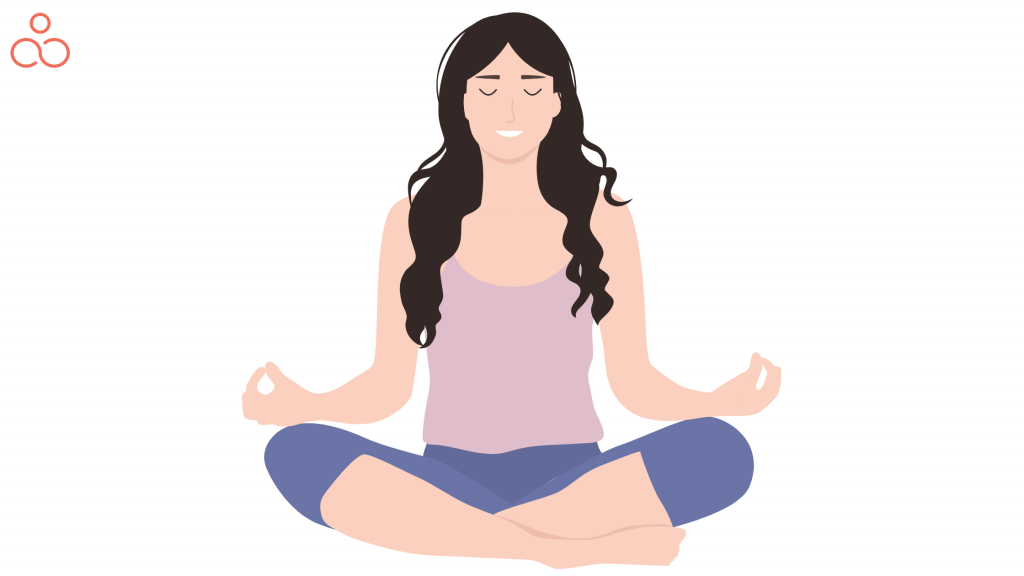
Can you possibly find any drawbacks of mediation? Well, it might seem like a waste of time for busy people, but in reality, it is a blissful boon. There are several mental health benefits of mediation.
Well, you might be shocked by this information. But here comes the truth. About 95% of our behavior runs on autopilot because neural networks lie within all of our habits. So, we can say that our mind, and thus, we, are mainly running on our subconscious mind functions. And as a result, it reduces millions of sensory inputs per second into effortlessly manageable shortcuts. And so we can function ideally in this rapidly functioning world.
Your attention span can increase rapidly. You tend to focus better. Your anxiety and aggression may get under your control through mediation. You may find yourself, your mind, and your soul in a better and more peaceful place than ever before. And as your mental health flourishes, your physical health can also get enhanced along with it. Your lifestyle might automatically become better, and your life will be attracting nothing less than positive energies.
So, would you want to miss out on these excellent benefits? Well, it is understandable that the question is somewhat rhetorical!
FAQ’s
Here are some quick replies to some commonly asked questions.
Do my eyes need to be shut entirely?
There is no such hellbent rule in meditation. It is about your mind focusing on yourself and your present. If you can achieve that successfully, with or without opening and shutting your eyes does not make a difference.
I need the urge to scratch quite often and I feel my body twitching. What should I do?
This has a very mindful answer and remedy. Do scratch, but through your mind. Do not use your fingers, but use your mind. Try it!
What am I aroused (sexually) through some thoughts during meditation?
You should know that it is not wrong or unnatural. It is common for this to happen. But, these are the thoughts that you will have to control and make your mind focus on your present. You will achieve maximum success with persistent mediation.
Is there any specific time to meditate?
Not at all. Meditate at your convenience, at any hour of the day. Traditionally it has been done in the morning. Also, it is better to meditate on an empty stomach. Yes, there is a substantial reason for it. When your stomach is full, you tend to get sleepier. And since the mediation process is about relaxing and focussing, it is not shocking to feel sleepy.
Does it have to be every day?
Well, the more, the better. So, if you meditate every day, the results or the benefits will shower on you faster. And, you, too, will become more proficient in a shorter time if you meditate regularly.
Does mediation have anything to do with religion?
No. Dear wandering minds, mediation has nothing to do with religion. Though it emerged from the seeds planted by the Hindu Culture in India, it has nothing to do with religion. You, me, and everyone else can meditate no matter your religion. The purpose of meditation is to initiate peace and connect with yourself. Tell me, do peace and mindfulness have any boundaries? Does it come to one religion and not the other? No, absolutely not! So, mediation is a process to bring you calmness and serenity.
Mediation will level down your stress and make you calm, and will not be influenced by your faith, nor will it influence your faith.
Is it possible I’m someone who CANNOT meditate?
If you have caught yourself thinking this, then Congratulations! You have initiated your beautiful journey of meditation. It is a more common thought than every beginner and mediator has. The secret is practicing. Try to bring your mind back into focus. Leash your mind into one task, which can be breathing. And with practice, you will be able to achieve perfect meditation sessions.
How do I know if meditation is working?
If you remember to do it every day, it means it’s working. It is not if you cease doing it regularly. You have nothing to lose and everything to gain by simply being there and spending the time.
Mainly when you feel that your sense of time is lost while meditating, it means it’s working. When you open your eyes and find a significant amount of time has passed without your knowledge, it means you have meditated effectively.
What if I don’t have time for meditation?
The beauty of meditation is that it doesn’t have to take up a lot of your time. Many five-minute guided meditations are available. Everyone gets five minutes, and one can do it on the go as well. It may be tailored to fit your lifestyle and shouldn’t feel like a huge commitment.
The first of meditation is relaxation. So, you can start by relaxing and being mindful of your thoughts. This is also a part of meditation.
The first step of meditation is relaxation. So, you can start by relaxing and being mindful of your thoughts and actions. Meditation is adaptable and can be applied throughout the day.
How do I make meditation a habit?
It takes persistence and commitment to building any new habit. You can start by setting up a routine, preferably in the morning. Set a specific goal, set reminders, or use any app to remind yourself about your new routine every morning. Initially, you can start with small and make it a persistent habit. Later once you are used to it, you can increase your meditation time.
Final Words
Meditation is an excellent way of improving your lifestyle. It becomes so beneficial when we start finding ourselves in this fast-paced world. It opens gateways to deeper perception as you link yourself with your body, mind, and soul. We tend to revisit the happenings in our life. Our mistakes, our faults. It becomes more like a movie whose track has been put on repeat. Isn’t it boring? Would you not want to put an end to this dull repetitiveness? Would you not want to make your mind a bit more calmer? Would you not want to get rid of all the random thoughts distracting your peaceful mind? Would you not want a healthier lifestyle? Yes, definitely a YES! So, no other way can give you a better opportunity to do so than regular mediation.

